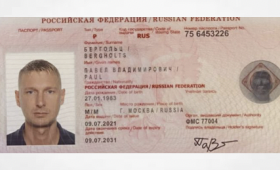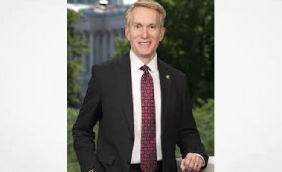11 July 2016
We did report this over the weekend but this report care of the presidential communications operations office gives a lot more detail.
Solon re-files ‘Philippine Compassionate Medical Cannabis Bill
The proposal recently got a boost following the statement of President Rodrigo Duterte that although he would not legalize marijuana, he supports medical marijuana because it is an ingredient of modern medicine now.
“There are medicines right now being developed or already in the market that contains marijuana as a component,” said President Duterte when sought for his position on the medical marijuana proposal, a few days after winning the May 11 elections.
Albano said his recently re-filed proposal “Philippine Compassionate Medical Cannabis Act,” embodied in House Bill 180, should not be deemed in any manner to advocate, authorize, promote, or legally or socially accept the use of cannabis or marijuana for any non-medical use.
“For this reason, the bill provides for control measures and regulation on the medical use of cannabis to ensure patient’s safety and for effective and efficient implementation of the Act,” said Albano.
The lawmaker said the use of cannabis for medicinal purposes is provided for by both existing international and national laws. For one, he said the Single Convention on Narcotic Drugs, 1961 as amended by the 1972 Protocol provides in its Preamble: “Recognizing that the medical use of narcotic drugs continues to be indispensable for the relief of pain and suffering and that adequate provisions must be made to ensure the availability of narcotic drugs for such purposes.”
It further provides in Article 4 that “subject to the provisions of this Convention, to limit exclusively to medical and scientific purpose the production, manufacture, export, import, distribution, trade in, use and possession of drugs.”
Meanwhile, Albano said the “Dangerous Drugs Act of 2002” recognized the medical use of drugs classified as dangerous drugs, including marijuana, when it said in Section 2: “The government shall, however aim to achieve a balance in the national drug control program so that people with legitimate medical needs are not prevented from being treated with adequate amounts of appropriate medications, which include the use of dangerous drugs.”
Albano said in the Philippines, thousands of patients suffering from serious and debilitating diseases would benefit from legalizing the medical use of cannabis.
“According to the 2012 Report of the International Agency for Research on Cancer (IARC), there were 98,200 new, diagnosed cancer cases in a year in the country while 59,000 are dying of cancer annually,” said Albano.
Albano said while many patients may still opt for conventional and orthodox treatment, the intention of the bill is to invoke the right of the patient to choose treatment and the duty of the physician to honor the patient’s decision as well as to inform the patient of the side effects of such treatment.
He cited the recorded use of cannabis as medicine goes back to about 2,500 to 10,000 years ago in traditional Chinese and Indian medicine.
Recent studies, he said, show that cannabis has established effects on control of epileptic seizures, pain management in multiple sclerosis and arthritis, treatment of symptoms associated with HIV-AIDS and palliative care in end-stage cancer treatment.
“Potential medical effects based on clinical trials include prevention of cancer from spreading, management of anxiety, slows progression of Alzheimer’s disease and control of muscle spasms and tremors. Cannabis use in children with epilepsy and seizure disorders have been shown to be effective without the deleterious side effects of anti-epileptic medications,” said Albano.
Albano said cannabis has many currently accepted medical uses in the US, having been recommended by thousands of licensed physicians and more than 500,000 patients in 26 states including the District of Columbia with medical marijuana laws.
Likewise, Israel, Canada, the Netherlands and the Czech Republic have enacted medical cannabis laws that remove criminal sanctions for the medical use of cannabis. Meanwhile, Finland, Portugal, Spain and Luxembourg, in recognition of the medical value of cannabis, have developed various forms of de facto decriminalization, where possession and use of cannabis, rarely lead to criminal prosecution.
House Bill 180 provides the State shall legalize and regulate the medical use of cannabis which has been confirmed to have beneficial and therapeutic uses to treat chronic or debilitating disease or medical condition that produces one or more of the following: cachexia or wasting syndrome; severe and chronic pain; severe nausea; seizures, including but not limited to those characteristic of epilepsy; or severe and persistent muscle spasms, including but not limited to those associated with multiple sclerosis.
The bill mandates the Department of Health (DOH) Secretary to lead the formulation of regulations to implement the Act. The Secretary shall also issue registered identification (ID) cards to qualified patients after a careful review of their required documents.
The bill also provides for the establishment of the Medical Cannabis Compassionate Center (MCCC), which refers to any entity registered with the DOH and licensed to acquire, possess, cultivate, manufacture, deliver, transfer, transport, sell, supply and dispense cannabis, devices or related supplies and educational materials to registered qualifying patients.
The MCCC shall guarantee the appropriate dispensation of cannabis and shall not release more than the prescribed dosage for one month to a registered qualified patient or designated caregiver. It shall maintain internal confidential record of each entry which includes information on the date and time the cannabis was dispensed, the amount of cannabis being dispensed and on whether it was dispensed directly to the patient or to the designated caregiver.
A registered MCCC or Medical Cannabis Safety Compliance Facility (MCSCF) shall implement appropriate security measures to deter and prevent the theft of cannabis and unauthorized entrance into areas containing cannabis.
Persons who discriminate qualifying patients and violate confidentiality shall be punished accordingly. (HOR)
– See more at: http://news.pia.gov.ph/article/view/1141468062894/solon-re-files-philippine-compassionate-medical-cannabis-bill-#sthash.j4Cm7lOp.dpuf















